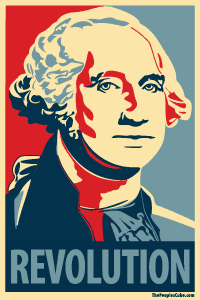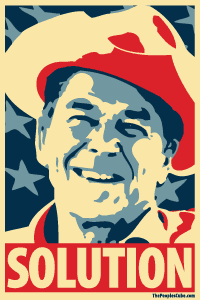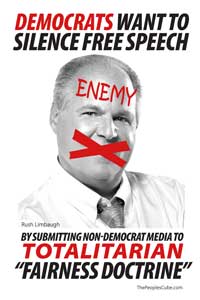By George Hawley | June 9, 2012 | Young Americans for Liberty
When the Berlin Wall fell and the Soviet Union imploded two years later, Americans sighed a breath of relief. Seemingly overnight, our debilitating fear that a horde of T-72’s would blitz through the Fulda Gap evaporated; the world realized a nuclear holocaust would not be the Cold War’s coup de grace. What’s more, the Cold War’s conclusion freed millions of souls from Soviet oppression. We were right to be relieved. American conservatives, who were eager to take credit for USSR’s demise, were feeling particularly triumphant at that time. We had finally reached the “end of history,” and “democratic capitalism” reigned supreme. It remains to be seen, however, whether post-Cold War conservative chest thumping was truly justified.
Although all freedom lovers should celebrate the downfall of the dictatorship of the proletariat, the peaceful death of the Soviet Empire did not necessarily indicate the demise of Marxism as a force in the world. In fact, a strong case can be made that the United States is more Marxist now than ever before. It is true that a socialist revolution did not occur, as Marx predicted, via an apocalyptic struggle between workers and the bourgeoisie, but a socialist revolution of sorts nonetheless occurred. To those who believe Marxism has been relegated to “the dustbin of history,” I can only point to the words of Marx himself. The world we inhabit is not so different from the one Marx envisioned.

 If you were to judge the state of the country by listening only to the Obama campaign, you would conclude that we are on the verge of the long-awaited triumph of the liberal welfare state, and that all that stands in the way is a gang of retrograde Social Darwinists who somehow manage to be simultaneously nihilistic and theocratic. That band of reactionaries ran the economy into the ground for the sake of their wealthy patrons, and now they’re coming for our social programs and for women’s freedoms. Only if they are held off can the forward march of history proceed.
If you were to judge the state of the country by listening only to the Obama campaign, you would conclude that we are on the verge of the long-awaited triumph of the liberal welfare state, and that all that stands in the way is a gang of retrograde Social Darwinists who somehow manage to be simultaneously nihilistic and theocratic. That band of reactionaries ran the economy into the ground for the sake of their wealthy patrons, and now they’re coming for our social programs and for women’s freedoms. Only if they are held off can the forward march of history proceed.

 Even so, the United States is still the world’s only superpower, and so it will remain for the foreseeable future. Its economy is more than twice the size of
Even so, the United States is still the world’s only superpower, and so it will remain for the foreseeable future. Its economy is more than twice the size of 






